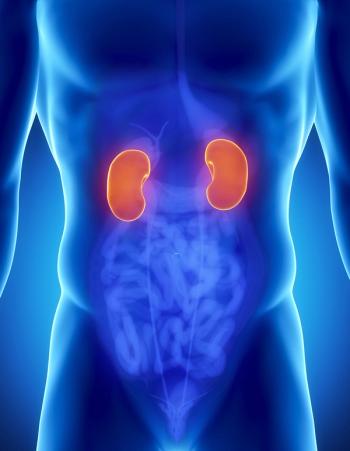
Five-year follow-up findings highlighted a durable benefit among patients with advanced renal cell carcinoma following treatment with nivolumab plus ipilimumab compared with sunitinib.

Your AI-Trained Oncology Knowledge Connection!


Five-year follow-up findings highlighted a durable benefit among patients with advanced renal cell carcinoma following treatment with nivolumab plus ipilimumab compared with sunitinib.
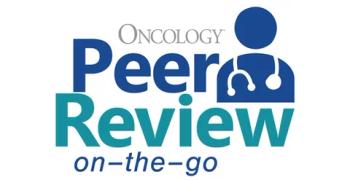
Christine Chung, DO, spoke with CancerNetwork® about the latest research from the journal ONCOLOGY® about implications of blood-based molecular markers in pancreatic adenocarcinoma.

Minimal increases in genetic testing and counseling were observed when using a traceback program to contact patients with ovarian cancer and surrogates via phone, and was not time sensitive.

Nicolas Girard, MD, speaks with CancerNetwork® about the updated safety findings of nivolumab and chemotherapy in resectable non–small cell lung cancer.

Pembrolizumab has been approved by the European Commission in 5 indications of solid tumors that are microsatellite instability–high or deficient mismatch repair.

David M. O’Malley, MD, spoke about unmet needs of patients with advanced microsatellite instability–¬high or mismatch repair deficient endometrial carcinoma and the clinical benefit pembrolizumab provides.

Although treatment with polatuzumab vedotin (Polivy) after anti-CD19 CAR T-cell therapy was safe and effective for patients with relapsed/refractory large B-cell lymphoma, it had a short duration of response.

Minimal residual disease status 3 months and 6 months following autologous stem-cell transplant could be predictive of progression-free survival and overall survival outcomes in multiple myeloma.

Patients with metastatic castration-resistant prostate and DNA repair gene defects cancer treated with niraparib were found to experience significant anti-tumor activity.

Nina Shah, MD, spoke about her key takeaways from a sub-analysis of the phase 2 KarMMa trial assessing correlates of complete response among those treated with idecabtagene vicleucel in relapsed/refractory multiple myeloma.

At SGO 2022, Catherine Watson, MD, spoke about how to encourage patients with ovarian cancer to seek genetic testing.

Based on results from an ongoing phase 1/2 trial, the FDA has granted fast track designation to HM432939 for patients with FLT3-mutant relapsed/refractory acute myeloid leukemia.

Updated findings from the phase 3 MONALESSA-3 trial identified a significant overall survival benefit among postmenopausal patients with hormone receptor–positive, HER2-negative breast cancer who were treated with ribociclib and fulvestrant vs matched placebo.

Findings from the phase 3 DESTINY-Breast03 trial have led to the FDA approval of fam-trastuzumab deruxtecan-nxki for the treatment of patients with unresectable or metastatic HER2-positive breast cancer.

Sam Klempner, MD, spoke about how clinicians exploring use of ctDNA in gastrointestinal cancers may inform their research with results from other tumor types.

Nina Shah, MD, spoke about analyzing correlates of complete response in patients with relapsed/refractory multiple myeloma who were treated with idecabtagene vicleucel.

Investigators have identified an association between the diagnosis and care of older patients with multiple myeloma and substantial financial burden on Medicare.

The results of the phase 3 TOPAZ-1 trial led to the priority review of durvalumab plus chemotherapy in patients with locally advanced biliary tract cancer.

Despite its use in a population with broad characteristics and high-risk features, a real-world outcome analysis demonstrated brexucabtagene autoleucel’s feasibility and efficacy in those with mantle cell lymphoma.
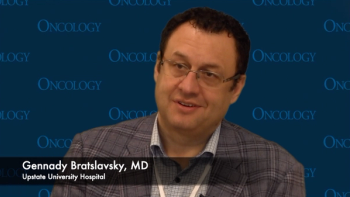
Gennady Bratslavsky, MD, at the 15th Annual Interdisciplinary Prostate Cancer Congress® and Other Genitourinary Malignancies, spoke about which research in renal cell carcinoma has the greatest potential for clinical impact.
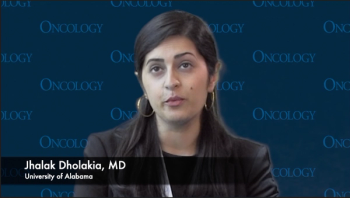
An ongoing trial assessing neoadjuvant mirvetuximab soravtansine plus carboplatin in advanced folate receptor α–positive ovarian was reviewed by Jhalak Dholakia, MD, at The Society of Gynecologic Oncology 2022 Annual Meeting on Women’s Cancer.
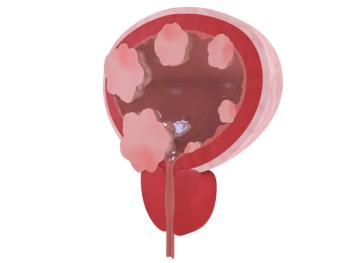
The FDA granted priority review to a supplemental new drug application for darolutamide plus docetaxel for the treatment of metastatic hormone-sensitive prostate cancer.

Plans to resubmit a biologics license application for toripalimab as treatment of advanced recurrent or metastatic nasopharyngeal carcinoma have been made for midsummer 2022 following receipt of a complete response letter from the FDA.

Patients with persistent, recurrent or metastatic cervical cancer whose tumors express PD-L1 can receive treatment with pembrolizumab plus chemotherapy with or without bevacizumab following approval by the European Commission.

Ira Winer, MD, PhD, FACOG, spoke about future directions of nemvaleukin alfa plus pembrolizumab for patients with pretreated platinum resistant ovarian cancer.

In a conversation with CancerNetwork®, Nicolas Girard, MD, highlighted directions of future research with nivolumab and chemotherapy in patients with resectable non–small cell lung cancer.
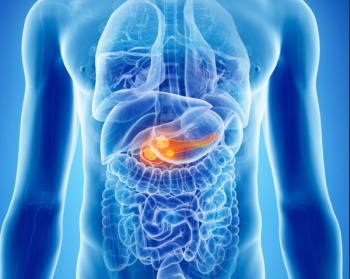
Surufatinib, a treatment for patients with pancreatic and extra-pancreatic neuroendocrine tumors, received a complete response letter from the FDA.

Patients with N0 to N1 nasopharyngeal carcinoma who received upper-neck radiation vs whole-neck radiation saw similar regional control with less radiation toxicity.
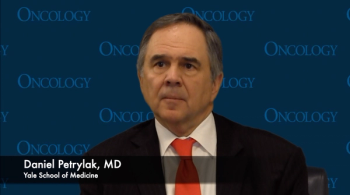
At the 15th Annual Interdisciplinary Prostate Cancer Congress® and Other Genitourinary Malignancies, Daniel P. Petrylak, MD, reflects upon mentorship during his training to become an oncologist.

Trastuzumab deruxtecan has been granted breakthrough therapy designation by the FDA for the treatment for HER2-low metastatic breast cancer.